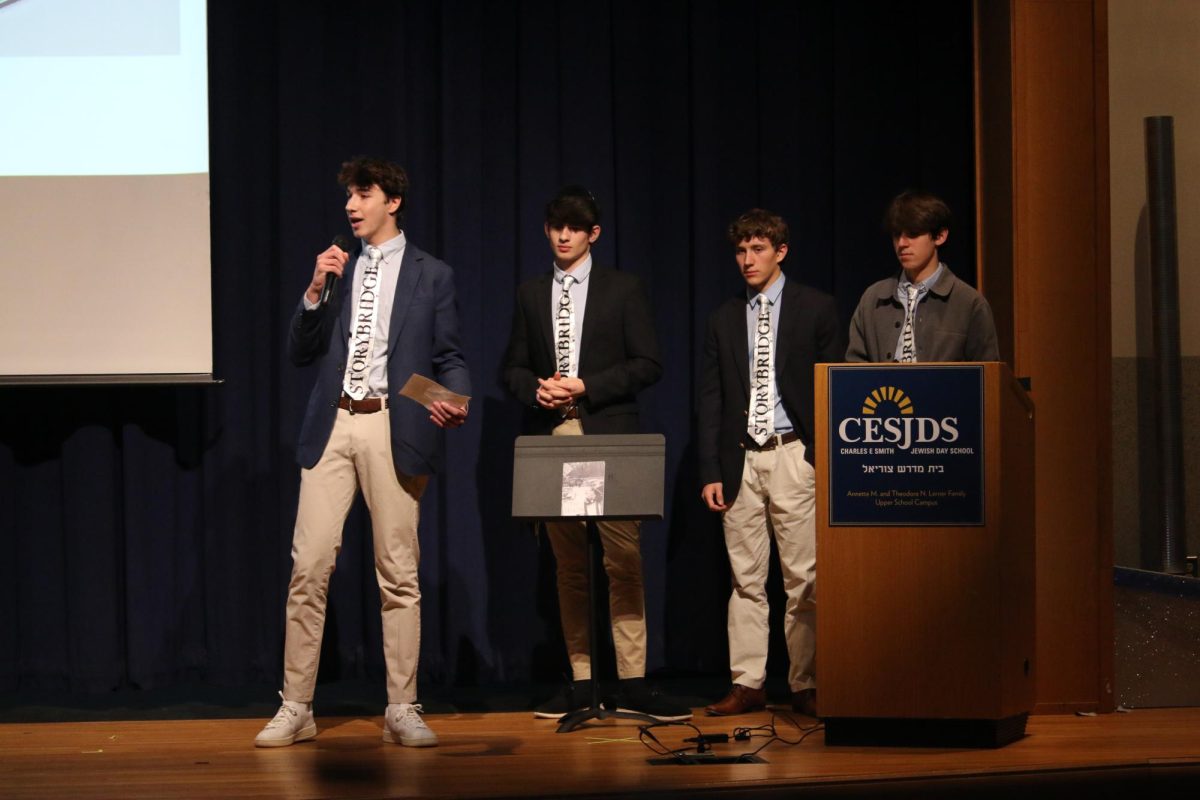On Thursday June 12, the Israeli Defence Forces (IDF) preemptively attacked Iranian nuclear programs, materials and scientists, along with military officials and intelligence leadership in a complex air operation.
Washington Managing Director and Senior Fellow at Israel Policy Forum Rachel Brandenburg (‘01) said Israel also had drone sites set up next to Iranian missile bases, and was able to take out missile launchers and prevent an immediate response from Iran.
The IDF killed top Iranian officials, including the Islamic Revolutionary Guard Corps air force chief, and bombed the state broadcasting building after issuing an evacuation warning.
“Israel has been saying for a long time, long before October 7, dating back to the years before President Obama signed the JCPOA, the Iran deal in 2015, that Iranian pursuit of a nuclear weapon is an existential threat against Israel,” Brandenburg said. “And Israel has long been pressuring the United States to go after Iran’s nuclear program militarily.”
Although Israel has mostly targeted nuclear and military sites, Iran has retaliated by targeting dense civilian population areas and infrastructure, according to Brandenburg.
As a result, Israelis have been in and out of their bomb shelters since early Friday morning, and the country has effectively been under lockdown and in a state of national emergency, leaving over 150,000 Israelis stranded around the world.
While the Iron Dome is mainly able to prevent missiles from landing, Iran has sent over 350 in the last few days. Several missiles sent by Iran have not been intercepted by Israeli air defences, hitting infrastructure in central Israel, including Tel Aviv, Haifa and Bnei Brak. The death toll is at 24 as of June 16., with the number of civilians hospitalized is 247 according to the Times of Israel.
Children have been injured and killed, people have been stuck under rubble and debris and whole buildings have been evacuated.
“This is now an ongoing war, so we’re seeing multiple rounds of Israel hits certain things in Iran, then Iran retaliates, and vice versa,” Brandenburg said. “And so there’s really no knowing when it’s going to end.”
Alumna Ella Kotok (‘23) is currently in Israel for the summer with a program called Onward, where college students are matched up with summer internships in Israel. Onward was originally based in Tel Aviv, but the program moved the students down to Eilat on Sunday, where they had been participating in their internships remotely. On Tuesday, most of the participants left Israel via cruise ship to Cyprus, while some chose to remove themselves from the program and stay in Israel with family and friends.
Kotok said that while a lot of Israelis did not immediately go into their bomb shelters because of how often they experience sirens, this attack from Iran has proven to be different than what Israelis have seen over the past few months.
“Now everyone’s taking it really seriously, because you see the pictures and everything from Tel Aviv, like the mere shock waves just from the impact of the missiles are causing severe damage in the buildings,” Kotok said.
In addition to the country being under lockdown due to Iranian missile attacks, the Israeli airport and airspace have also been shut down, making it impossible for anyone to enter or exit the country. Rising senior Maya Greenblum was scheduled to attend a 5-week program in Israel run by Camp Yavneh called Naaleh, but due to the danger of entering the country, the program was canceled.
Instead, the 33 people signed up to attend Na’aleh will be working as junior counselors in place of the 36 Israeli staff members who can not leave the country right now.
“My friends and I feel upset and feel sad that we’re not able to go to Israel, but at the same time, we feel very grateful that we’re still able to have the opportunity to spend this summer together, even if it’s in a different capacity,” Greenblum said.
In addition to Naaleh, multiple students were planning to travel to Israel and play in Maccabiah, the official Jewish Olympics. Unfortunately, Maccabiah has been postponed until summer 2026 due to the danger in Israel right now.
While the United States has helped Israel defensively by striking down missiles, they have not gotten involved on the offensive front according to the Times of Israel.
“We’re seeing now a level of destruction in Israel that we haven’t seen in a long time,” Brandenburg said.













